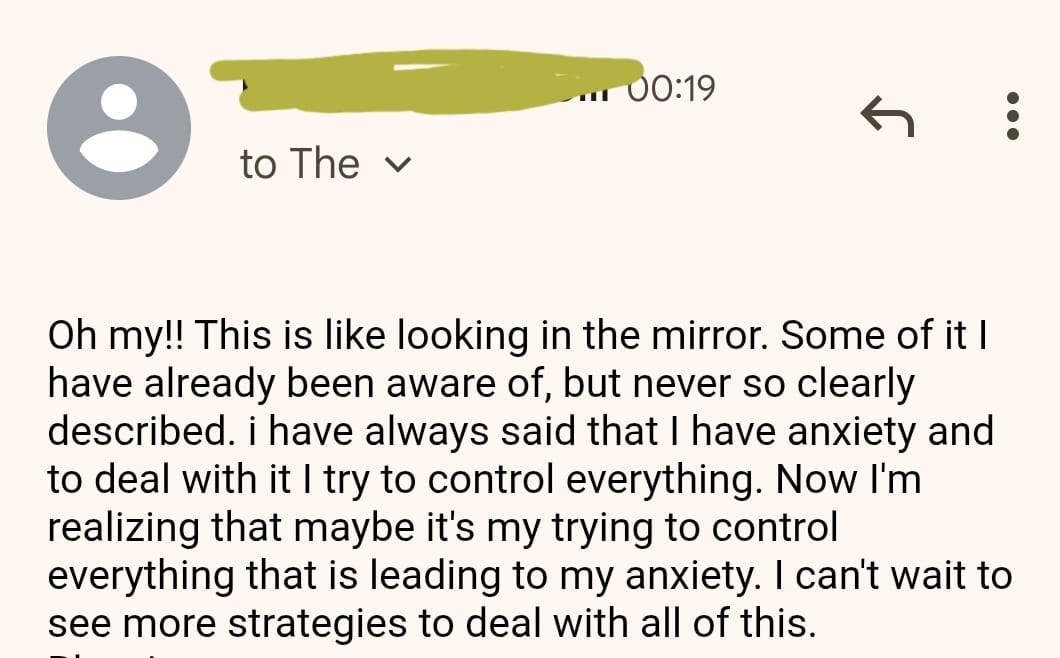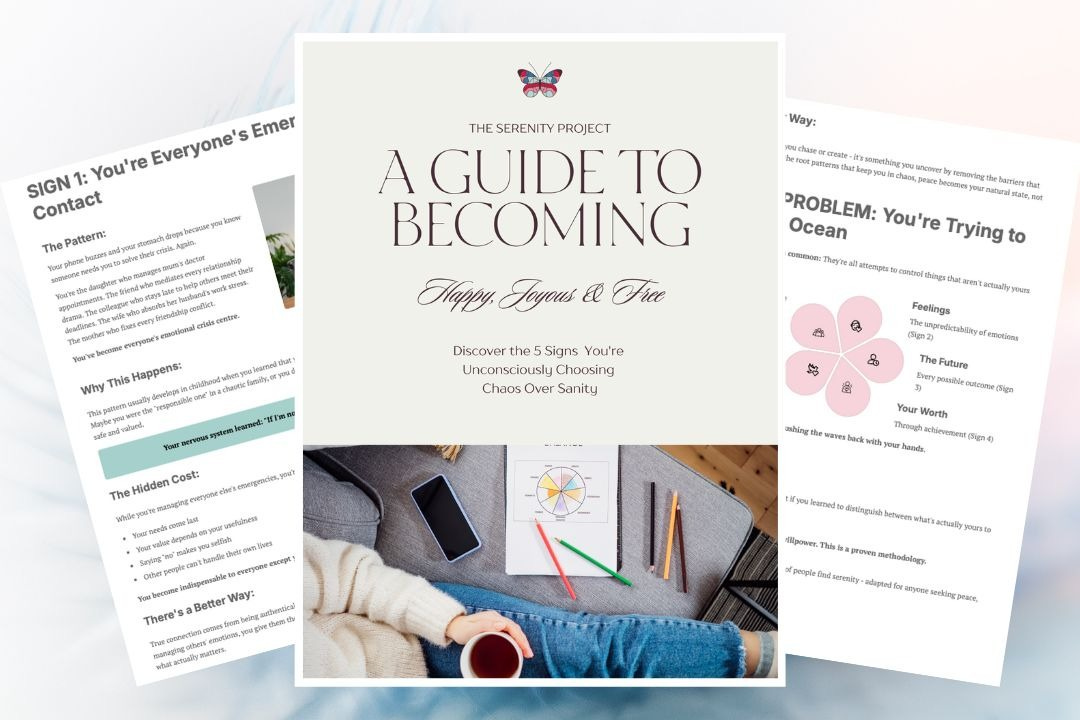It's Not Love, It's Programming
How to tell the difference between genuine care and learned self-abandonment
I used to think love meant making myself responsible for everyone else's emotions.
Fixing their problems so they wouldn't have to feel uncomfortable.
Saying yes when my whole body was screaming no, just to prevent their disappointment.
I called it love. I called it being a good person. I called it caring.
I was wrong.
What We Mistake for Love
Somewhere along the way, many of us learned that our value comes from how much we can absorb, fix and endure for others.
We learned to equate our worth with our willingness to abandon ourselves.
This isn't love. It's programming.
Abandoning yourself to keep them comfortable isn't love—it's a survival strategy you learned when your needs felt too risky to express.
Making yourself responsible for their emotions isn't love—it's the result of being taught that other people's feelings are more important than your own reality.
Fixing their problems so they don't have to feel bad isn't love—it's robbing them of their own growth while exhausting yourself in the process.
Tolerating disrespect because "they're stressed" isn't love—it's accepting crumbs and calling it a feast.
Staying small so they can feel big isn't love—it's dimming your own light to avoid threatening someone else's insecurity.
Saying yes when your truth is no isn't love—it's betraying yourself to avoid conflict.
How Programming Masquerades as Virtue
The insidious thing about this programming is how virtuous it feels. Society celebrates self-sacrifice, especially in women. We're praised for being accommodating, helpful, and selfless.
But there's a difference between genuine compassion and compulsive caretaking.
Real love doesn't require you to disappear. Real love doesn't demand that you betray your own truth to keep others comfortable. Real love creates space for everyone to be fully human, including you.
When you abandon yourself repeatedly, you're not loving anyone. You're enabling dysfunction while slowly suffocating your own soul.
The Cost of Confusion
When we confuse programming for love, everyone suffers:
The people we're "helping" don't learn to handle their own emotions or solve their own problems. They become dependent on our constant management.
We become resentful, exhausted and disconnected from our own needs and desires. We lose touch with who we are beneath all the fixing and managing.
Our relationships become transactional—based on what we can do for others rather than genuine connection between equals.
Breaking the Cycle
The first step is recognition. Start noticing when you're operating from programming rather than authentic care:
Do you feel resentful after helping someone?
That's a sign you abandoned yourself.
Do you feel responsible for other people's reactions to your boundaries? That's programming talking.
Do you feel guilty when you prioritise your own needs? That's the program trying to keep you in line.
Real love feels different. It's sustainable. It honours everyone's humanity, including yours.
What Love Actually Looks Like
Genuine love trusts others to handle their own emotions. It offers support without taking responsibility for outcomes. It maintains boundaries not to punish, but to preserve the relationship.
Love doesn't require you to sacrifice your truth. It doesn't ask you to stay small. It doesn't demand that you fix, manage, or control.
Love is spacious enough for everyone to be fully themselves, messy emotions, disappointing choices and all.
No Shame: You Are Not Your Programming
You didn't choose these patterns. They developed as intelligent responses to environments where your authentic self wasn't safe or welcomed.
But now that you can see them, you have a choice.
You can continue operating from the old programming, exhausting yourself trying to control everyone else's experience.
Or you can learn a different way, one that honours both your desire to care for others and your responsibility to care for yourself.
If this resonates, this is one of the 5 signs you might be choosing chaos over your own sanity. You can learn more about those signs HERE.
Sometimes the most loving thing you can do is stop abandoning yourself.
Because when you stop confusing programming for love, you create space for something much more beautiful: relationships based on truth, respect and genuine care for everyone involved, including you
Ready to stop sacrificing yourself in the name of love? The Serenity Project helps women learn the difference between genuine care and self-abandonment. Download the guide to learn more!






Loved listening to this episode, so much resonated with me. Thankfully I've done a lot of this work with you already but the one area I still have to be on constant alert with is the difficult relationship with my mother 🤷🏻♀️. Also I'm dying to know what you chose for breakfast! 😃